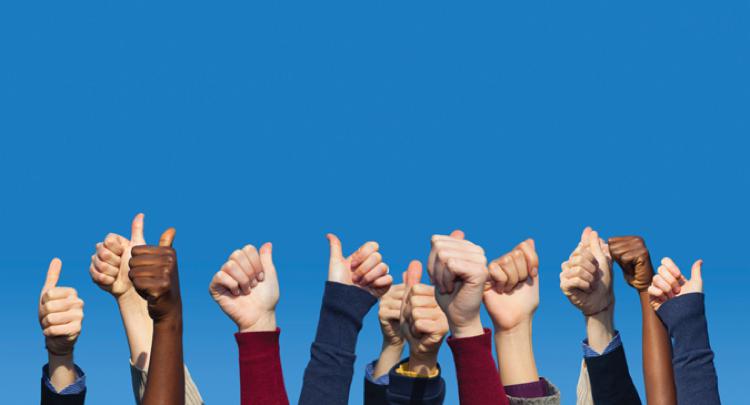by Abdulmohsen Al-Mayyas
“We all want to help one another. Human beings are like that. We want to live by each other’s happiness – not by each other’s misery. We don’t want to hate and despise one another. In this world there is room for everyone. And the good earth is rich and can provide for everyone. The way of life can be free and beautiful, but we have lost the way… To those who can hear me, I say – do not despair. The misery that is now upon us is but the passing of greed – the bitterness of men who fear the way of human progress… You, the people have the power – the power to create machines. The power to create happiness! You, the people, have the power to make this life free and beautiful, to make this life a wonderful adventure.” – Charlie Chaplin
Once upon a time, in a place just like this, I was in an office waiting on my 2-week late business cards to be delivered. Only to receive the wrong ones, again! I proceeded to call the press loudly demanding an explanation from the expatriate worker, only to find that my accent has become thicker and more “Arab.” My tone has become dry and almost threatening. And my general behavior has become rude and inconsiderate. I finished what I had to say only to hang up, unapologetic and proceeded with my day.
In this part of the world the statement “no one expects us to be waIt,” didn’t become clear to me until a friend pointed out that my racism went deeper that I had thought. And how, even some unapologetic behaviors might as well be influenced by that very racism.
We all come from this Earth and are destined to return to it. This law is universal. In between, in that time, you have the opportunity to reflect on your image— To wear that dress and spray that cologne. To call with your beaming voice to your expatriate servant to bring you your watch in which you schedule your timetable according to the significance of those you will meet.
This individual in front of you is Indian, the other Pakistani, Bangladeshi, Egyptian, Filipino, and a long list crosses your path that perhaps exceed you in their humanity, in their intelligence, in their spirituality. But it was fate that brought them to you in search of a bite. Yet you leer at that simple human being that did not shine your shoes exactly the way you requested.
You go out to the street approaching your vehicle and send warm greetings to that who is similar to you in nation and title. They return the greeting. You drive past two streets and on the third you don’t have the right of way, but you speed through regardless because the person on the opposite side is not of your color. You reach your office and whisper in the ear of those closest to you by race or blood… “Look at them. What are they up to? The expats. The Bedouns. The liberals. Those shmucks.” And everyone sings to his or her tune. Meanwhile, your tune is a family tree that defines your value. Its shade grows for every member that exceeds you. And you embrace yourself in the cool shades of its lavish growing arms.
As you return home try to remove your shoes and walk in theirs. Walk with no significance, crushing your arrogance and unjustified pride. Try to find a place outside the sands of that path where your own litter and spoils don’t land on you. Try and smell that soil you walk upon so perhaps you would resent yourself and the origin in which you hold so true to.
Try; perhaps you would step on a tribe of sand that may be your own. Try walking barefoot, so that if you were to trip, you would remember the agony of those whose paths you spoiled, mocking their inabilities and imperfections.
Step hard into the mud and soil and should you hear a sound, slow down. It may be the remainders of your own tongue that speaks so poorly of others. And if you tire of walking, try lying down. For what sands stick to your body are the remnants and origins of that human you scorned.
Gandhi had a dream that the hungry bellies of his people would be full and thrive with food instead of racism.
Mandela had a dream that the tanned throats of his people would chant the national anthem of their land.
Martin Luther King had a large dream in his speech, “I have a dream,” that his four offspring would not be treated based on their skin color.
So let’s have a dream to change ourselves. For the light of all humanity to spring from inside them and not from out. And for all the different colors to form a beautiful, complete, canvas.
Just like you, I hold affection for the sands I ran on as a child and embrace as an adult.
Just like you, I am full of ambition and curiosity, and hold the desire to remain eternal even after my death.
Just like you, words wound me. Words that judge me on a land I do not know and a place I don’t belong to. That deprives me of my birthplace, my district, and my local language that I know none other.
Just like you, I return to a home where I am the number one man. When to you I was the last. And even though my family tree is merely trimmings, my shadow extends across my nation’s land.
Just like you, patronizing looks, stale sympathy and cold half-hearted greetings hurt me.
Just like you, I search for kindness but from the heavens.
For we all need tender true kindness and everything above the sand is merely sand, only destined to return to it.








